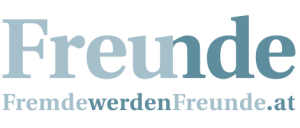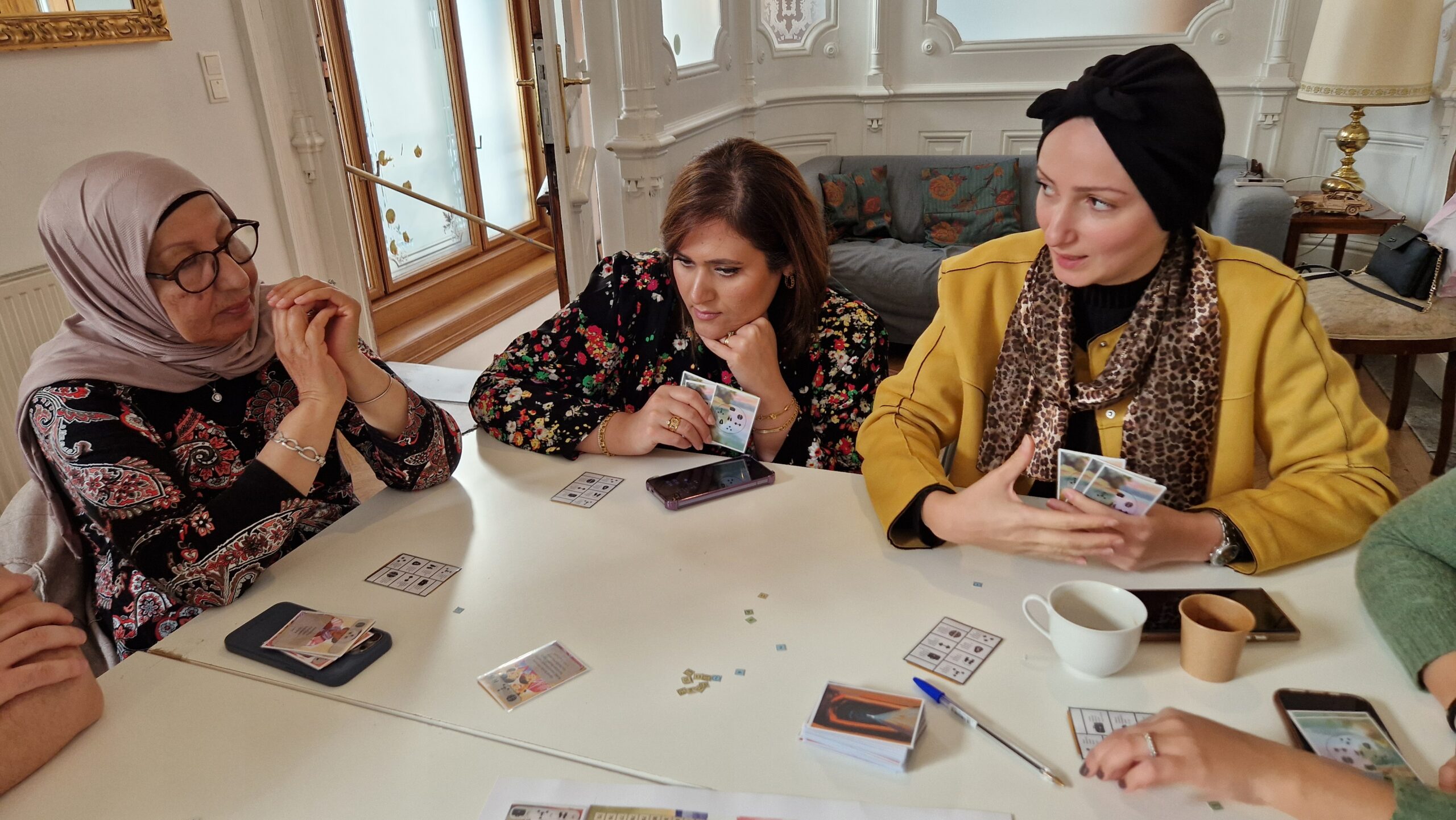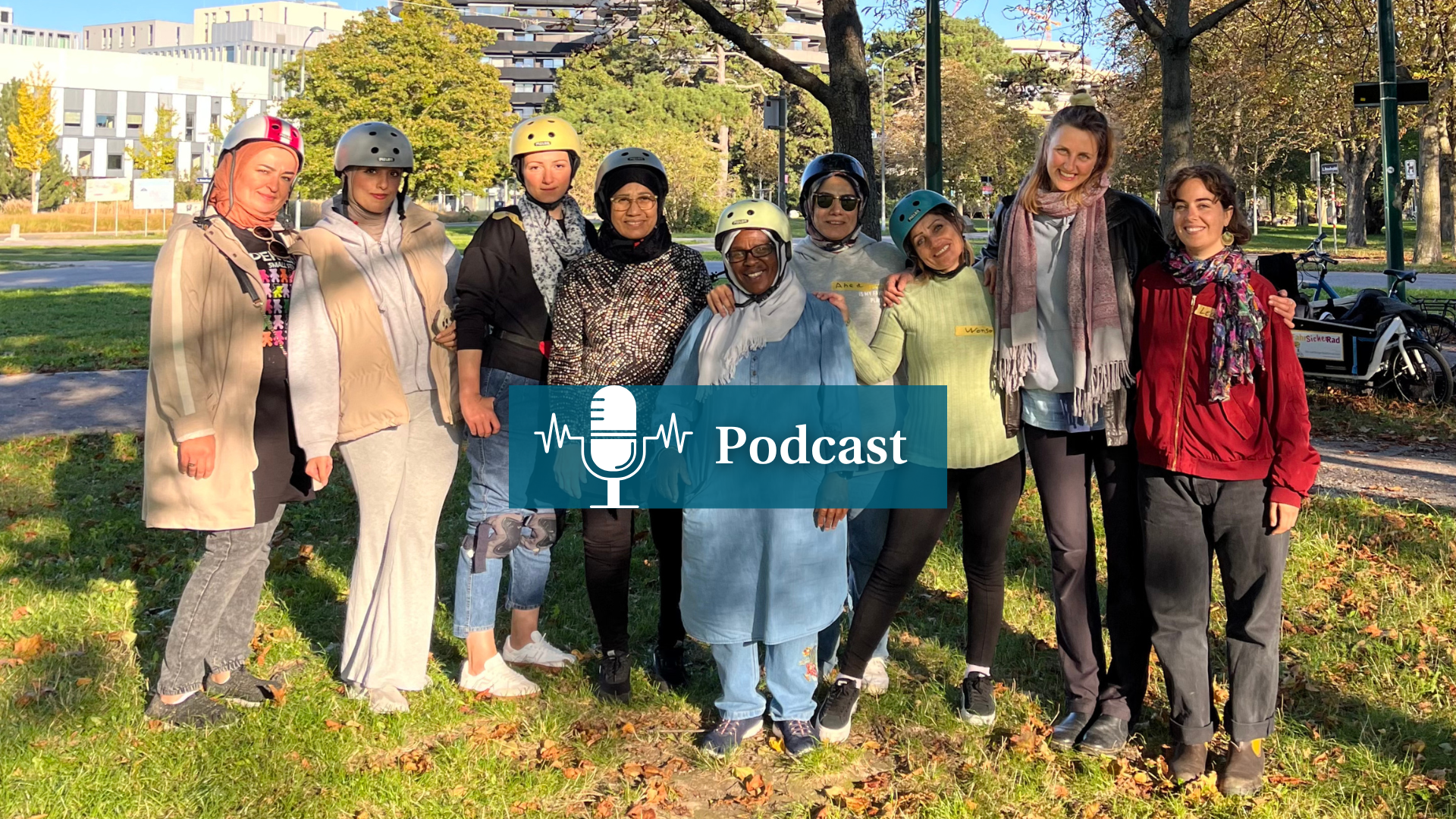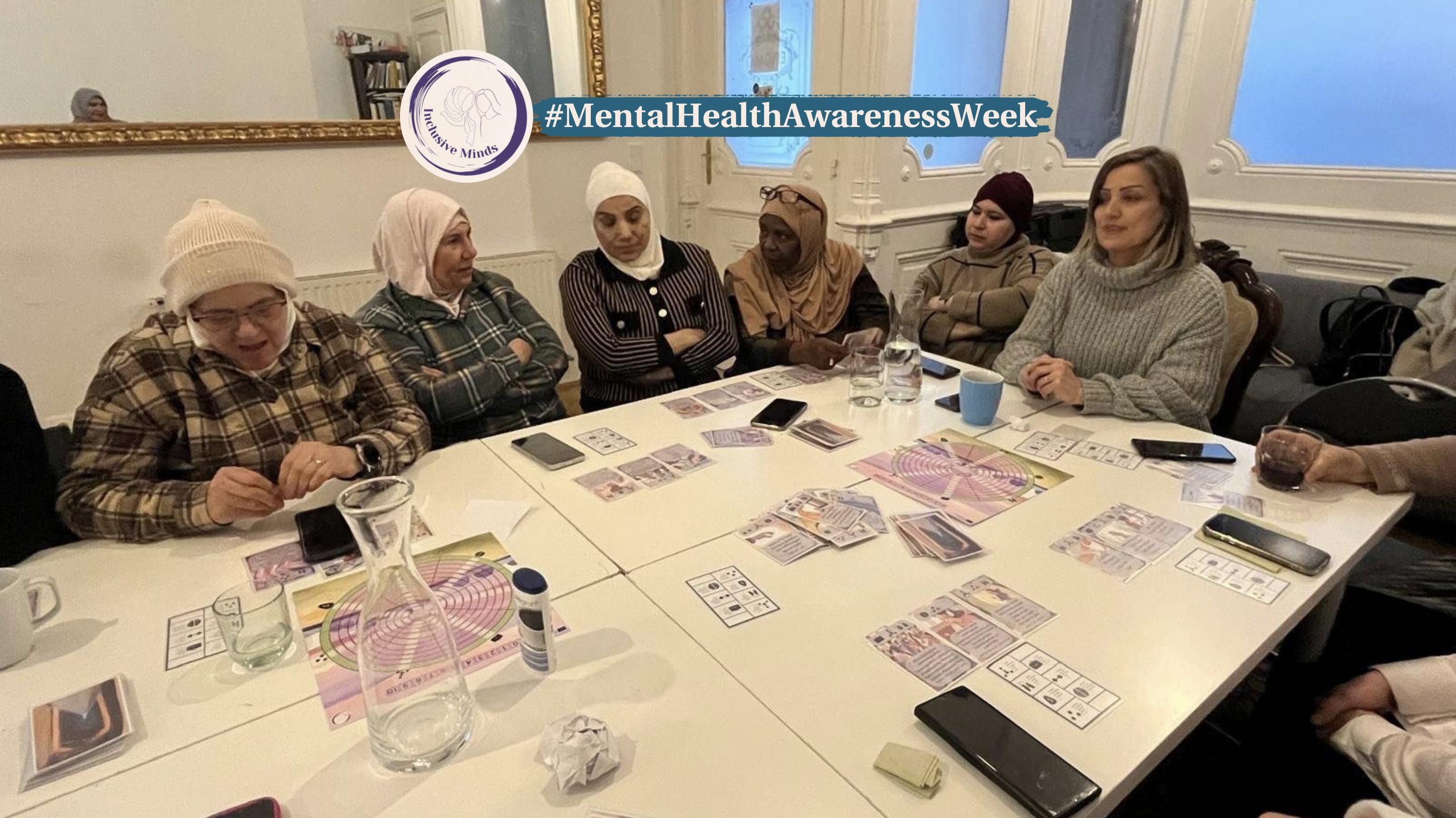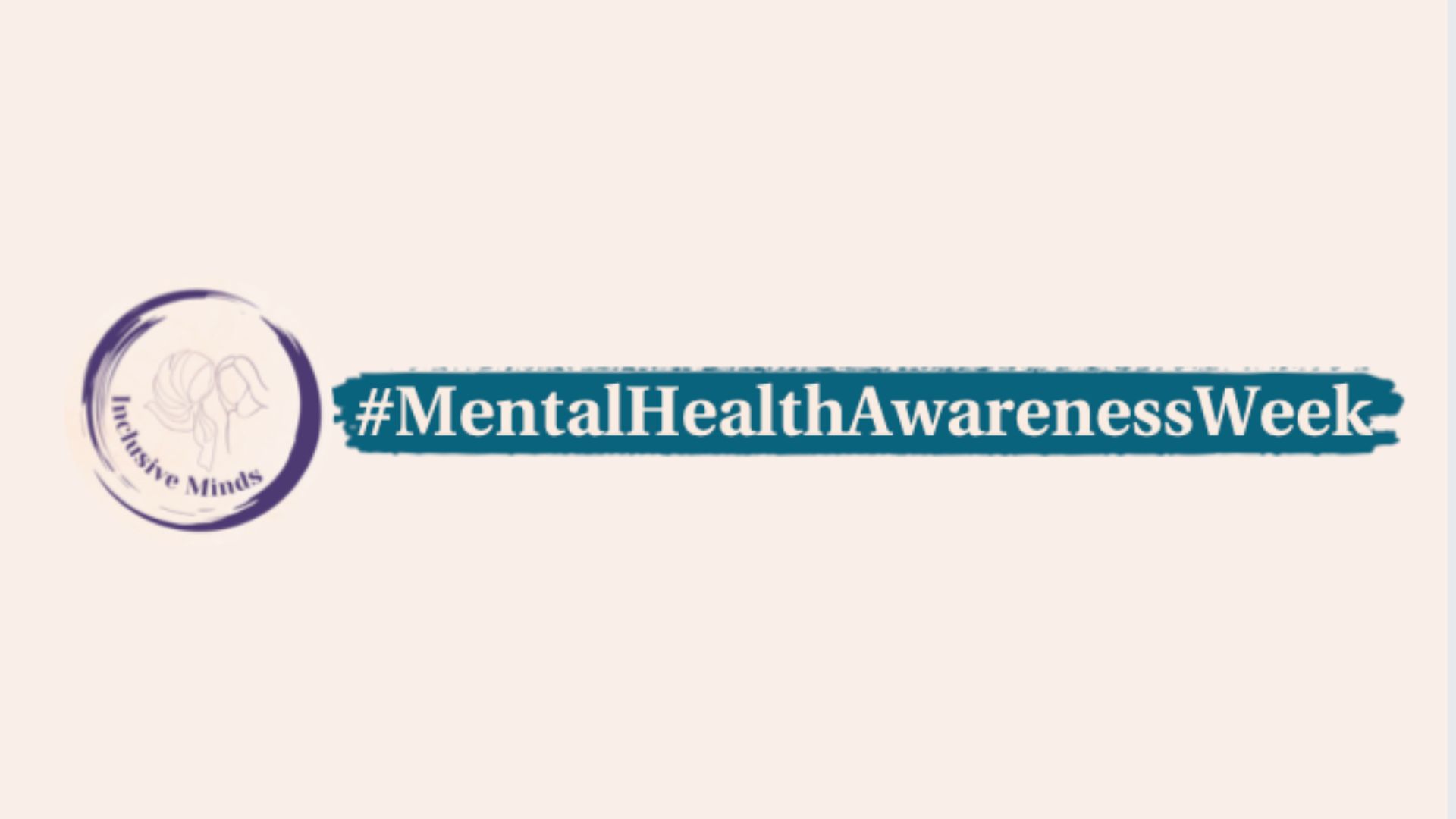Inclusive Minds journey comes to an end. Es ist die Geschichte eines besonderen Projekts. (English version below). Unser Erasmus+ Projekt Inclusive Minds geht zu Ende und es ist Zeit, Bilanz zu ziehen.
Das Ziel war einfach, aber sehr wichtig: die mentale Gesundheit von Frauen mit Flucht- oder Migrationsgeschichte zu stärken und heute können wir mit Stolz sagen, dass dieses Ziel wir erreicht haben. Wir haben das Projekt gemeinsam mit zwei großartigen Organisationen aus Schweden IKF Malmö und Griechenland Dracon Rules Design Studio umgesetzt. Genau diese internationale Zusammenarbeit hat das Ergebnis so besonders gemacht.
Der Projektbeginn war für uns klar: Wir wollten den Frauen zuerst einfach nur zuhören.
Durch Gespräche mit 40- bis 60-jährigen Frauen in ihrer eigenen Sprache konnten wir herausfinden, welche Sorgen und Bedürfnisse sie haben. ****Auffällig war, dass mentale Gesundheit für viele Frauen zunächst keine Priorität hat. Doch in einem sicheren Raum sind sie offen und bereit, darüber zu sprechen und Unterstützung anzunehmen.
Aus ihren Erfahrungen und Wünschen entstand ein Brettspiel, das hilft, einfach und offen über mentale Gesundheit zu sprechen. Das Spiel ist in fünf Sprachen übersetzt und ist für alle geeignet.
Das Spiel wirkt nicht wie Therapie, schafft aber sichere Räume für Frauen. Bei Testläufen in verschiedenen Ländern und Kontexten haben wir durchweg positives Feedback erhalten. Es hat sich als wirkungsvolles Werkzeug für Austausch und Unterstützung bewährt, deshalb kam es nicht nur bei Frauen, sondern auch bei Psycholog:innen zum Einsatz, die es nun in ihrer Arbeit nutzen können.
Mentale Gesundheit ist ein zentraler Bestandteil sozialer Inklusion – genau deshalb sind Projekte wie dieses so wichtig. Was wir begonnen haben, soll nicht enden. Es braucht mehr Räume, mehr Zuhören und mehr Mut, über das Unsichtbare zu sprechen.
—————————————————————-
Inclusive Minds journey comes to an end
Our Erasmus+ project Inclusive Minds is coming to an end – and it’s the perfect moment to reflect on what we’ve built together.
The goal was simple, yet deeply meaningful: to support the mental well-being of women with refugee or migration backgrounds. And today, we can say with pride : we’ve made that happen. Together with two amazing partner organizations — IKF Malmö in Sweden and Dracon Rules Design Studio in Greece — we brought this vision to life. It was this international collaboration that made the project truly special.
From the very beginning, we knew what mattered most: listening to the women.
We spoke with women aged 40 to 60 in their own languages – creating space for them to speak openly and honestly about their needs and challenges. One thing became clear: mental health is often not a priority – but when women feel safe, they are open, willing to talk, and ready to accept support.
These conversations became the foundation for something tangible: We created a board game that gently encourages open conversations about mental well-being in a way that feels natural and accessible. The game is available in five languages and can be used by anyone, no matter their background or experience. It doesn’t feel like therapy – and that’s the point. It creates safe, warm spaces where women feel seen and supported. We tested it in different countries and settings and received heartfelt, positive feedback everywhere. It has become a real tool for empowerment and support — not only for women, but also for mental health professionals, who are now integrating it into their everyday work.
Mental health is a key part of social inclusion – and that’s exactly why projects like this matter so much. This shouldn’t be the end – just the beginning! We need more spaces like this, more real conversations, and more courage to talk about what so often stays hidden.
Funded by the European Union. The views and opinions expressed are those of the author(s) only and do not necessarily reflect those of the European Union or the European Education and Culture Executive Agency (EACEA). Neither the European Union nor EACEA can be held responsible for them.
